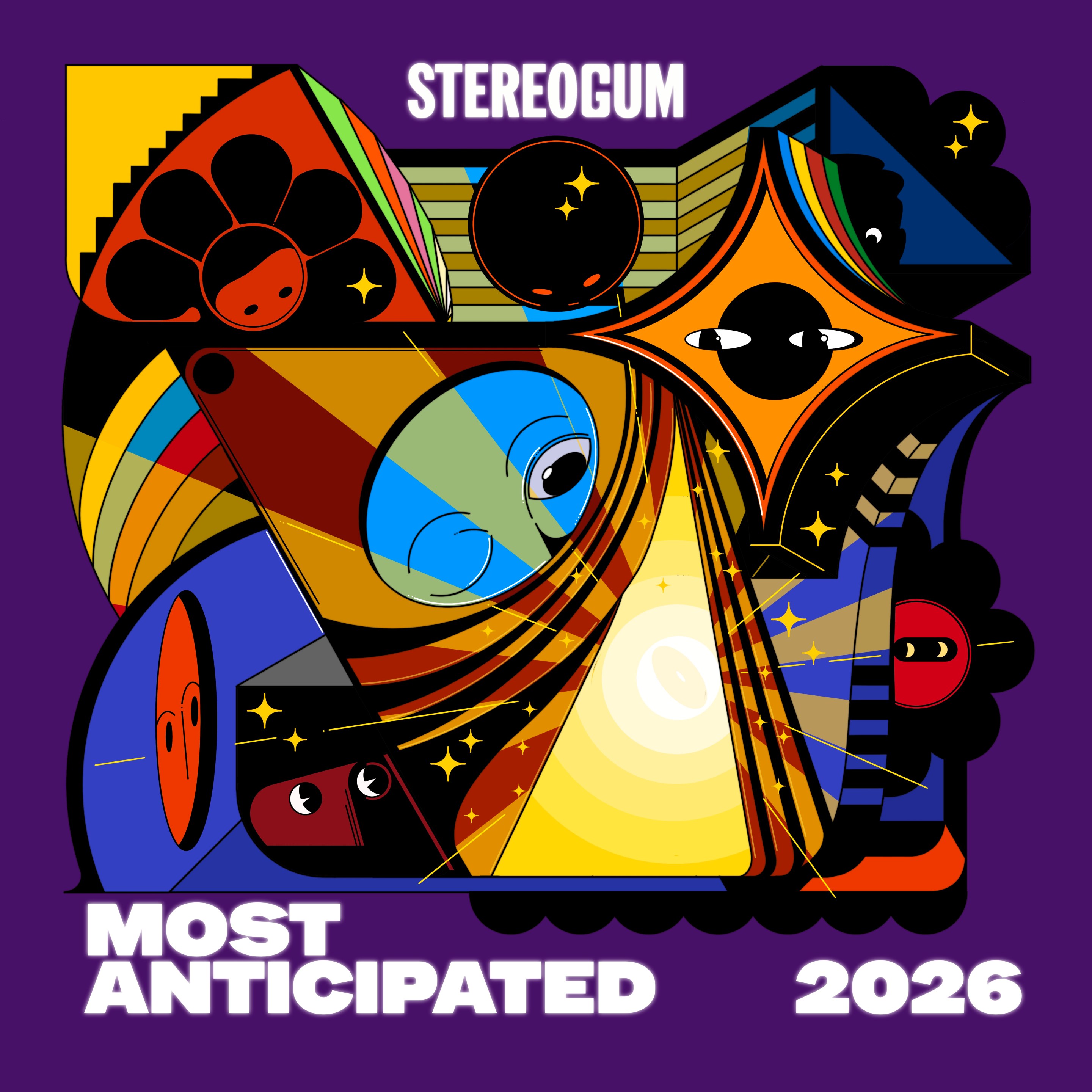Every week the Stereogum staff chooses the five best new songs of the week (the eligibility period begins and ends Thursdays right before midnight). This week's countdown is below, and you can listen to a playlist of all our 5 Best Songs on Spotify.
Today is a sad day here at Stereogum, because it's Peter Helman's last day on staff. Peter has been a part of the operation here for a very long time, since he was an intern way back in 2014. Along the way he's brought his discerning taste and witty writing into the mix, and been a crucial part of Stereogum's voice. It's a bummer to see Peter go, but we're excited for what he does next.
The five best songs of the week are below.
Destroyer - "June"
Dan Bejar's got a funky fever on this existential two-step into oblivion. Upon close-reading, "June" illustrates frustration, a cry for meaning, and pastoral rebirth, with Bejar decrying the loss of time and "fancy language" and shaking a fist at the dummies "happy to see her go." This world's "brutal," "nothing changes," and there's not a damn thing any of us can do. Still, it's remarkable how all of the horrors -- both internal and external -- slip away when snow melts and the weather cooperates -- or at least that's my best take on this gorgeous albeit cryptic sojourn. In the latter half of the song's seven minutes, Bejar does a head-spinning spoken-word cacophony that lands somewhere between poetry and philosophy. "Who really knows what love is?" Bejar sighs before giving himself over to mystery: "I'm in the process of figuring it out." —Rachel
Father John Misty - "Goodbye Mr. Blue"
Josh Tillman has tapped into '70s singer-songwriter tropes plenty over the course of his last 10 years as Father John Misty. So far, it seems like Chloë And The Next 20th Century might have some more mid-century big band curveballs, but on "Goodbye Mr. Blue" he returns to a sweet spot. At the same time, we've never heard him do it quite this way. There is a plainspoken beauty to the song, with a melody that just seems like it's part of Tillman's DNA at this point. He doesn't complicate it with too many state-of-the-world musings or sharp sarcasm; he just lets it gently ramble, carried along by gentle guitars and airy strings. He lets it be a bummer, and it sounds like a very exquisite bummer. —Ryan
Horsegirl - "Anti-glory"
When we profiled the young Chicago rock band Horsegirl last fall, they came off like voracious indie rock fans first and foremost, obsessives who could not contain their enthusiasm for uncovering new corners of underground music history. On the opening track from their debut album, that passion translates into pounding drums, rolling bass, and slightly skewed guitar that play out like a condensed history of early Matador Records, from Pavement to Cat Power to Interpol. Nora Cheng spouts lyrics like "In the back of the barn, in the back of the yard/ In the front of the town, in the back where it’s far," showing off her mastery of the ultra-cool oblique. And lest you slag off "Anti-glory" as mere '90s indie cosplay, it all resolves into a command too timeless to be tied to a certain genre or era: "Dance!" "Dance with me!" I'd guess a lot of people are going to heed that request going forward. —Chris
Floating Points - "Vocoder"
Floating Points' Sam Shepherd has always been a dance music producer, but calling him a dance music producer is about as reductive as calling Phil Collins a drummer. His most recent project was Promises, a classical/jazz/ambient/experimental opus with Pharoah Sanders and the London Symphony Orchestra. But he is still a dance music producer, a damn good one, and when he wants to, he can still make some damn good dance music. That's the version of Floating Points we get on "Vocoder," which might just be the straight-up hardest, clubbiest track we've gotten from him in years. Flickering synths lead into a massive, shuffling groove, ebbing and flowing for seven minutes of time-dilated dancefloor bliss. —Peter
Spiritualized - "The Mainline Song"
Look, we're all busy people here. Who has time for a six-minute song from a space-rock elder who hasn't meaningfully adjusted his style in at least a couple of decades? A song that spends a full 45 seconds clearing its throat with rising drones before a beat even arrives? A song where nobody sings for the first three minutes and then, when the vocals do arrive, they just repeat the same line again and again? I'll tell you who: You. You have time. It's fucking Spiritualized. You should always have time. A few things have changed for J Spaceman. He's not a human wreck anymore; he's a cleaned-up family man. When he writes a song called "The Mainline Song," he's actually singing about a train this time, not about jabbing a spike into his vein. But some things remain. The song in question is an ecstatic orchestral garage-rock hypno-lullaby with hundreds of things going on in the mix. All of those things, even the bit that sounds like a bleating bagpipe, are just choked with beauty, to the point where their cumulative effect can make you feel like you're staring God straight in the face. That's worth six minutes. That's worth a lot more than six minutes. —Tom






